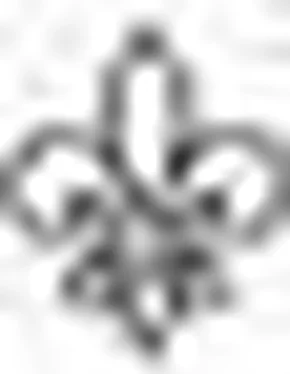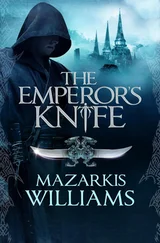T.F. Banks - The Emperor's assassin
Здесь есть возможность читать онлайн «T.F. Banks - The Emperor's assassin» весь текст электронной книги совершенно бесплатно (целиком полную версию без сокращений). В некоторых случаях можно слушать аудио, скачать через торрент в формате fb2 и присутствует краткое содержание. Жанр: Исторический детектив, на английском языке. Описание произведения, (предисловие) а так же отзывы посетителей доступны на портале библиотеки ЛибКат.
- Название:The Emperor's assassin
- Автор:
- Жанр:
- Год:неизвестен
- ISBN:нет данных
- Рейтинг книги:5 / 5. Голосов: 1
-
Избранное:Добавить в избранное
- Отзывы:
-
Ваша оценка:
- 100
- 1
- 2
- 3
- 4
- 5
The Emperor's assassin: краткое содержание, описание и аннотация
Предлагаем к чтению аннотацию, описание, краткое содержание или предисловие (зависит от того, что написал сам автор книги «The Emperor's assassin»). Если вы не нашли необходимую информацию о книге — напишите в комментариях, мы постараемся отыскать её.
The Emperor's assassin — читать онлайн бесплатно полную книгу (весь текст) целиком
Ниже представлен текст книги, разбитый по страницам. Система сохранения места последней прочитанной страницы, позволяет с удобством читать онлайн бесплатно книгу «The Emperor's assassin», без необходимости каждый раз заново искать на чём Вы остановились. Поставьте закладку, и сможете в любой момент перейти на страницу, на которой закончили чтение.
Интервал:
Закладка:
A little wave of almost panicky resistance coursed through him, and he badly wanted not to have to go into this barn, not to confront what was there. For a moment it seemed almost to take hold of his body, to be physically impeding him, and it was an enormous struggle to place one foot ahead of the other. But leadenly, doggedly, he continued to walk.
Humphrey Albright was the first through the low, wide door that already stood open. Morton went next, breathing deep. The barn was open, large, the light not strong enough to banish all the shadows. But there was no hay here, and any stalls or pens had been torn out. The floor was stacked with small four-gallon barrels, and boxes of all sizes, many marked with writing in French.
“A smugglers' den,” Presley said. “Out here!”
“Not zo var vrom Tor Bay, Teignmouth, and Dalish,” the other man said, then reached up to hang his lantern on a beam hook, illuminating a hellish tableau.
Morton registered the blood first. Darkened blood everywhere, splashed, smeared, drabbled across the rough stone floor. But there were other things. Grey stuff spilled across the stones, viscous, amidst which were scraps of white, glistening in the lamplight. A man's brains, and bits of his broken skull. And then the man himself, on the floor. Beyond an overturned plank table a second man, partly hidden from Morton's view.
Somehow, now that he actually had the thing before him, Henry Morton was better able to control his emotions. The worst, the horrible foreboding, seemed to pass, after one light-headed moment. For Jimmy Presley it was otherwise, and with a choking gasp, he abruptly turned and blundered back out. A moment later, through the narrow, broken window, they heard him bellow-a strange, half-throttled cry of protest and horror and shock. Then he fell silent. Albright nodded his head slowly, looking down. Beside him Westcott was impassive. It occurred rather disconnectedly to Morton that he must have seen worse on the decks of His Majesty's warships.
No. As bad perhaps. Not worse.
But it also flickered through his mind that these sailors were hard men. Harder than one might other wise have supposed.
In fact, it was Westcott who spoke. “Who was he?”
“Him? Don't know. The other's a foreign cove,” mur mured Albright. “Lived here some zeven year now, by himself. Gervais, by name.”
Morton stepped over the corpse to gain a better view of the second body. A man of good size and strong build-nearly sixty, Morton guessed. He had what appeared to be two wounds-one in his chest, the other in the brow just above his eye.
“Master Gervais was shot,” Morton told the others.
Stepping away, he bent again to have a closer look at the other man. He had been large, bigger than Morton. As he grew more steady, the Runner noticed more. There seemed to be a single wound to the man's skull, though it had caused enormous damage-a testament to the force behind it.
“Is that Boulot, Morton?” Westcott asked.
“No.” Morton noticed something beneath the man's torn sleeve. “This man has a dressing on his forearm. I would venture he is the same man d'Auvraye's Mrs. Barkling wounded with a cleaver.” He bent forward and pulled open the man's mouth a little more, repelled by the feel of cold lifeless flesh. “He fits the description- even the bad teeth.”
“Well, that's one saved from the hangman,” Westcott said softly. “Here's the weapon.”
Morton rose to find Westcott holding a greatcoat pistol.
“It hasn't been fired!” the navy man said. “And look at this.” He handed it butt first to Morton, who found a scar across the top of the octagonal barrel, as though it had been struck by a sharp object or considerable weight. The scar cut through the maker's name: Twigg.
“I've seen this pistol before-or rather another just like it. D'Auvraye's murderer dropped one in the entry of the count's house in Barnes.”
“Here's what did for the murderer, then.” Westcott bent over a pile of packing straw and retrieved a hand axe, bloodied, its handle broken off just below the head.
“Leave it as it lies,” Morton told them. “The coroner will want to see it.”
Westcott eyed him from across the field of carnage. “Who killed these men? Boulot?”
“If these are the men who killed the Count d'Au-vraye, as I suspect they are, then it makes little sense that Bonapartists killed them. But who, then, is Boulot traveling with? Let's out.”
In the open again, gratefully breathing the fresh night air, they wandered from the yard, through an overgrown paddock, and stood together a moment, mute, looking sightlessly out into the darkness. Morton wordlessly offered Westcott a cheroot, and they lit them from the lantern, while Humphrey Albright pulled a briar pipe from his pocket.
In the lantern light Morton opened his pocket watch: almost five. There was a hint of pewter in the eastern sky, he thought.
A few moments later Presley came up, white-faced.
“Morton amp;” he began, hollowly.
“Nay, Jimmy.” Morton waved his apology away, the red tip of his cigar tracing a short arc in the night. Presley bent his head for a moment, then looked up again. His voice was still unsteady.
“I've never seen a man with his brains spilled out like that. Every thought he ever had, every memory, spread out on the stone…”
The farmer made a low, sympathetic noise in his throat, and Westcott blew smoke reflectively into the dark air.
Morton asked, “Who found them?”
Albright nodded. “ 'Twas a boy named Parsons, as brought Gervais potatoes and cabbages vrom the varm over the way. That were early this even. As he comes over the vield, the boy zees a carriage going down the lane to the road. These Vrenchmen must have ztolen it zomewhere.”
“How did the boy know they were French?”
“This man here be Vrench, and a smuggler, sure. Mayhap he won't carry them over t' Channel.” The Devon man shrugged. “ 'Tis Vrenchmen be missing from Princetown.”
“This crime wasn't committed by some escaped French soldiers. When you find them, remember that. This was done by men who believe that entire nations are at stake and that individual lives count for nothing. We've no time to await Sir Godfrey but will send word back if we learn anything that bears upon this.” Morton motioned toward the barn; then the three London men climbed aboard the carriage and set off down the shadowy lane.
Presley and Morton went back up onto the driver's bench, manoeuvring them back onto the highway to Plymouth. Morton set the horses to a good pace, realising that the carriage carrying Boulot had gained much time on them. Exhaustion and anxiety both preyed on him now. Angelique Desmarches, the Count d'Auvraye, his manservant, and now these two out on the lonely moor. Five deaths. The first involving torture; the count and his servant cold, quick, calculated. Almost certainly revenge. The brutal murders he had just seen-and these too were likely revenge for the murder of the count. But then who had abducted Boulot? Why would Bonapartists kill the man who had murdered the count? Perhaps the supporters of Bonaparte were making war amongst themselves, though for what reason he could not imagine.
Whoever was aboard the berlin, one thing was cer-tain-they did not hesitate. The murders in the barn were not crimes of passion, to be regretted later. These men would not go to their confessors and repent. Murder was nothing to them-the man who had wielded the axe would have split wood with the same dispassion.
“Jimmy?”
“Aye, Morton.”
“When we catch these murderers up, remember, they'll kill you if they can. Don't forget what you saw in that barn. These are not men who will give themselves over to justice when they are finally caught. They have never known pity or remorse. And we cannot indulge them either.”
Читать дальшеИнтервал:
Закладка:
Похожие книги на «The Emperor's assassin»
Представляем Вашему вниманию похожие книги на «The Emperor's assassin» списком для выбора. Мы отобрали схожую по названию и смыслу литературу в надежде предоставить читателям больше вариантов отыскать новые, интересные, ещё непрочитанные произведения.
Обсуждение, отзывы о книге «The Emperor's assassin» и просто собственные мнения читателей. Оставьте ваши комментарии, напишите, что Вы думаете о произведении, его смысле или главных героях. Укажите что конкретно понравилось, а что нет, и почему Вы так считаете.











